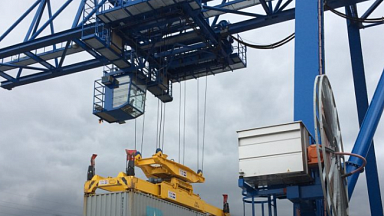PKP Cargo intends to use ordinary containers for the first shipment. As a result, the company is focused on the products that do not require refrigeration when transporting. The container train will be formed at Małaszewicze junction on the Belarusian border. To deliver containers from various locations across Poland to the departure point, the rail and road connections could be used. It is expected that the container train will arrive at Xi’an in 14 days after departure from Małaszewicze. Its route will go through Belarus, Russia and Kazakhstan.
Looking for customers
The arrangement of the new container train has been assigned to PKP Cargo Connect, a subsidiary of PKP Cargo. «Transporting food by rail from Poland to China via Belarus, Russia and Kazakhstan is the fastest and most effective land route and that is why we wanted the PKP Cargo Group to launch this connection. Polish exporters will be able to quickly and in large quantities deliver food to the absorbent Chinese market, where our food products enjoy a reputation due to their high quality,» said Czesław Warsewicz, CEO of PKP Cargo.
At the moment, PKP Cargo Connect is talking with the Polish producers and suppliers. «The companies interested in exporting food to China can contact PKP Cargo Connect by using a dedicated e-mail address: EksportChiny@pkpcc.com,» the rail freight operator stated.
Russian ban
Russia imposed a ban on import and transit of the European food products in 2014. This closed the possibility of transporting dairy, meat, cereal, sweets and other food products from Poland to China by rail. The food producers could transport their goods to third countries by sea or air. However, the delivery time for a vessel from Poland to China takes around two months while air transport is very fast but too expensive.
In summer 2019 the Russian government decided to lift the ban for the transit transportation of the European food products but with the one obligatory condition. The containers must have the electronic seals equipped with GLONASS navigating technology (Russian analogue of GPS).




